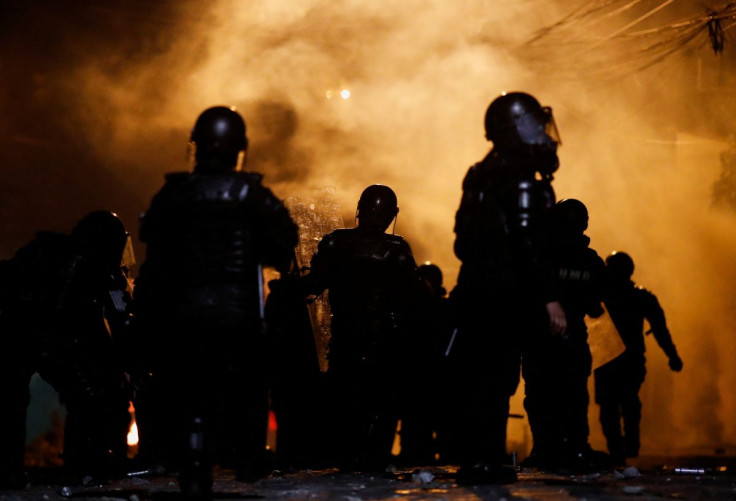Ecuador Indigenous Protests Carry On Despite Small Concession

Ecuador's government on Thursday acquiesced to a demand of indigenous demonstrators who have held 11 days of protests, giving them access to a cultural center, but violent confrontations at marches continued.
Disquiet over prices for fuel, food and other basics has exploded into sometimes-violent protests across the country since June 13, prompting President Guillermo Lasso to declare a state of exception across six provinces, including that of Quito, the capital.
The demonstrations - longer-lasting and larger than marches over fuel prices in October last year - are testing Lasso's ability to restart the economy and kick-start employment.
Lasso has an adversarial relationship with the national assembly, whose lawmakers have blocked his proposals, and he has struggled to contain rising violence he blames on drug gangs.
On Thursday afternoon the government allowed thousands of marchers into the headquarters of a major cultural organization and pulled back security forces there. In exchange they asked for people and goods like food and medicines to be allowed to circulate freely.
"It isn't possible to lift the state of exception," Government Minister Francisco Jimenez told local radio early on Thursday, referring to another protester demand.
The government is complying with other requests of the protesters, he said, including subsidized fertilizers, forgiving bank debts, and increasing budgets for health and education.
"We didn't come here for people to die, for people to get injured," said Leonidas Iza, the head of indigenous group CONAIE.
Despite the cultural center gesture, confrontations between protesters and security forces continued in Quito on Thursday afternoon, and a large group of counter-protesters gathered in the city's north to demand an end to blockades.
Demonstrators have entered flower farms and oil blocks, causing damage in places and negatively impacting crude production.
State-run oil company Petroecuador reported its production is down by almost half because of the protests.
"We've lost generation plants, secondary pipelines, collection stations, and the Trans-Ecuadorian pipeline (SOTE) has no crude to pump," Petroecuador's manager, Italo Cedeno, told local radio.
Protest leaders have denounced police violence during the demonstrations, with one protester identified as Byron Guatatoca killed after being struck in the head by a tear gas canister.
Another protester was killed last week after falling into a ravine. The Health Ministry has said two people have died in ambulances delayed by road blockades.
The president tested positive for coronavirus late on Wednesday, according to the government.
© Copyright Thomson Reuters 2024. All rights reserved.





















